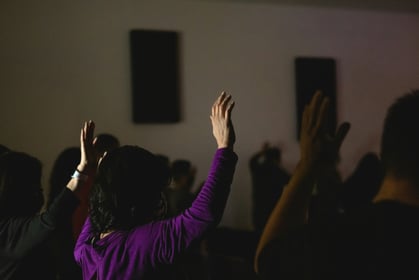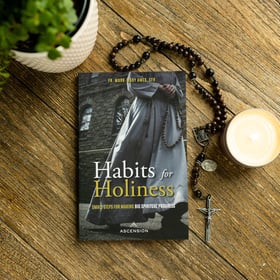“Hi. My name is Hazelle. And I’m an introvert.”
I don’t usually introduce myself like that; although if I’m being honest, I often wish I could. I feel as if saying that would quickly help people understand why I tend to be quieter around dinner parties—that is if I even go to one. Or why I often seem to be lost in thought during social situations, usually in an attempt to create “mental space” when physical spaces are more crowded than my comfort level.
My extroverted husband and I learned very early in our relationship that we have quite opposite tendencies when it came to our social calendar. He would be happy to meet someone for breakfast, another for lunch, and host a dinner party in the evening. This is the total opposite of my idea of a fun weekend. I’d much prefer a slower, quieter time, with much fewer people around.
When the pandemic hit, and the government started to issue mandates that required social distancing, my introverted heart silently rejoiced. ‘Finally,’ I thought. ‘a legitimate excuse to clear our social calendar!’ At first, it was great. A cancelled lunch date or a deferred hang out.
But then we started needing to cancel bigger things—like my sons’ birthday parties—something they had been looking forward to for so long. Or my daughter’s baptism, where we ended up uninviting everybody in favour of a private ceremony. Most of our family from out of town who had intended to visit us cancelled their travel plans. Our social life was something we were always intentional about as a family, and suddenly it became out of our control.

While it was unnerving when so much closed down, part of me gravitated towards freedom from the social pressure. The more the news reported the need to maintain our distance from everyone, the more my heart closed up to others. Days turned to weeks and weeks to months. And while the “new normal” seemed to fit my personality better, I noticed that something inside of me was starting to change.
Slowly but surely, even my very introverted personality started to feel the weight of isolation from a community.
The more I took it to prayer, the more I started to realize that my motivation for staying away from people was less about my concern for public health; it was more about a desire to keep people out. Inwardly, I wanted to be emotionally distant.
I failed to realize how unhealthy and harmful it was to be emotionally and spiritually distant.
In the Screwtape Letters, C.S. Lewis expertly uses a fictional story between a senior demon, Screwtape, to his nephew Wormwood who is learning to tempt people. Together, they plot to steal, kill and destroy “the patient”. In one of Screwtape’s letters to Wormwood, he says: “Whatever their bodies do affects their souls. It is funny how mortals always picture us [demons] as putting things into their minds: in reality, our best work is done by keeping things out.”
It became clear: I was using the pandemic as a veil to hide behind the fact that I was uncomfortable with how messy people and relationships can get.
In the name of social responsibility, I closed up to the people around me and my family. My introversion can help me grow in virtue, but used the wrong way, can easily become a vice.
I began to see something deeper about the human soul in my very extroverted husband and children. Avoiding social and relational entanglements starved their spirits. In some ways, it felt as if their souls were withering, like plants deprived of water and sunlight.
Introvert or extrovert, I was reminded of one very important truth about how we are all made: in God’s image and likeness.
God reveals Himself using familial, communal language—as a family of three persons: Father, Son, and Spirit. We were always created for relationship; first with God, then with others. A pandemic can’t change that.

A few weeks after international borders started to close, my dad suggested that we connect with our family overseas on a weekly basis and pray the rosary together. Each week, I marvel as I watch my 90-year-old grandmother on the screen, donning massive headphones trying to follow our conversation that spanned different cities and different countries.
One time, my uncle asked my grandma if she understood anything that we were all saying, to which she replied: “not really, I just really enjoy watching you all share your lives.” I don’t remember the last time our family has connected like that; it was never truly a priority for us. But the sudden and drastic change caused by the pandemic rekindled a desire to get to know each other in a new way. This sense of belonging—of being known—is part and parcel of who we are as members of God’s family.

We all must continue to do our part to seek the good of our community, but when circumstances force us to rethink the way we connect with others, our challenge is to learn how to lean in, instead of shut down.
I know that God created us for relationship. He created man even though He already existed in a perfect community of the Father, Son, and Spirit. And then for Adam, He created Eve. I know that we, as Christians, are called to be part of a community. And while this is true, I also know that my introverted traits are part of how God made me unique.
I can celebrate how God made me, and celebrate the community that He has blessed me with. I do not have to choose between the two.
And whenever I catch myself tending towards being lonely and isolated, another C.S. Lewis quote helps me put things into perspective:
“To love at all is to be vulnerable. Love anything and your heart will be wrung and possibly broken. If you want to make sure of keeping it intact you must give it to no one, not even an animal. Wrap it carefully round with hobbies and little luxuries; avoid all entanglements. Lock it up safe in the casket or coffin of your selfishness. But in that casket, safe, dark, motionless, airless, it will change. It will not be broken; it will become unbreakable, impenetrable, irredeemable. To love is to be vulnerable.”
― C.S. Lewis, The Four Loves
So what does a healthy balance look like? One way I reoriented myself is by remembering the fruits of the Spirit: “love, joy, peace, patience, kindness, generosity, faithfulness, gentleness, and self-control (Galatians 5:22-23)”.
If a situation arises and I notice that my response does not seem to reflect any of these fruits, then I take it to prayer and ask God to again fill me with His Spirit. I don’t always get it right; but thankfully, there is no limit as to how often I can ask the Spirit to fill me!
There is not one single way to get this all right; after all, people are messy! Relationships require work, commitment, and courage. There is a hard balance in finding what’s right for our whole family and loving others. And while the pandemic has heightened the challenges that both introverts and extroverts face, the truth remains: to love is to be vulnerable, and vulnerability requires work. But it is so, so worth it.




